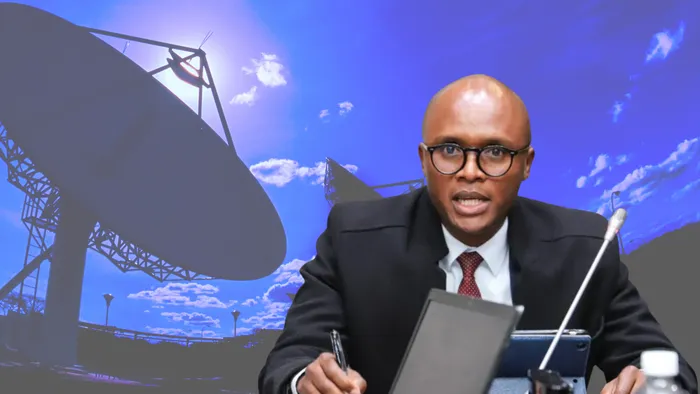Minister Malatsi's policy direction on EEIPs faces backlash from Cosatu

Communications and Digital Technologies Minister Solly Malatsi gazetted a policy direction on the role of EEIPs in the ICT sector, aiming to provide policy certainty and attract investment.
Image: X/IOLGraphics
Cosatu has expressed concerns over the proposed policy direction on equity equivalent investment programmes (EEIPs) in the Information and Communications Technology (ICT) sector.
Communications and Digital Technologies Minister Solly Malatsi gazetted a policy direction on the role of EEIPs in the ICT sector, aiming to provide policy certainty and attract investment.
The policy direction allows companies to meet empowerment obligations through alternatives to 30% ownership, such as investing in local suppliers, enterprise development, and job creation according to Malatsi.
However, Cosatu spokesperson Matthew Parks, said the Broad-Based Black Economic Empowerment (BBBEE) Act provides two options for investors that include a 30% shareholder option or an equity equivalent option.
The trade federation giant believes that the BBBEE Act is inclusive and provides accommodating options for all investors and not only for the wealthy.
The federation is concerned that the proposed policy direction might allow companies like Starlink to bypass BBBEE requirements.
"It's critical that Starlink, like all other investors, comply with the BBBEE Act, whether it is the shareholder or equity equivalent option," Parks emphasised.
Parks cited examples of companies like IBM and Microsoft that have utilised the equity equivalent option.
Cosatu argues that exempting one company from BBBEE requirements would be unfair.
The Black Business Council's (BBC) spokesperson Masedi Sesele also shut down the idea saying it would be “bending of legislation” to accommodate an individual or company.
“Legislation is there for all to comply with, no exception. Otherwise, the country will become lawless…The BBBEE legislation together with the Codes of Good Practice prescribes that any company wanting to do business in South Africa should implement all the elements of the BBBEE codes being ownership, management control, skills development, enterprise and supplier development, and socio-economic development. We don’t know how the rumoured R2 billion is going to implement those important elements."
Malatsi, through his spokesperson Kwena Moloto, said the policy direction sought to provide the “much-needed” policy certainty to attract investment into the Information and Communication Technologies (ICT) sector, and specifically with regards to licensing for broadcasters, internet service providers, mobile networks, or fixed and mobile networks.
Moloto said Starlink was not the only company being considered.
Starlink, owned by Elon Musk, reportedly plans to launch its services in South Africa ahead of the G20 conference.
However, the company intends to bypass the BBBEE law and its 30% ownership requirement, preferring instead to go the Equity Equivalent Investment Programme route where they have offered to invest R2 billion.
Get your news on the go, click here to join the Cape Argus News WhatsApp channel.
Cape Argus